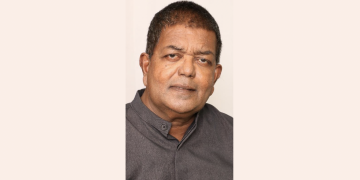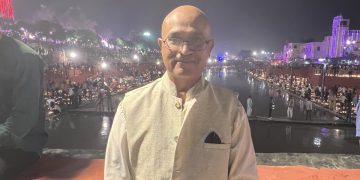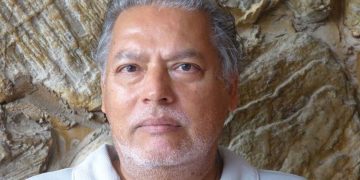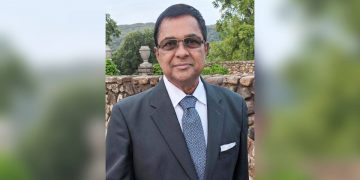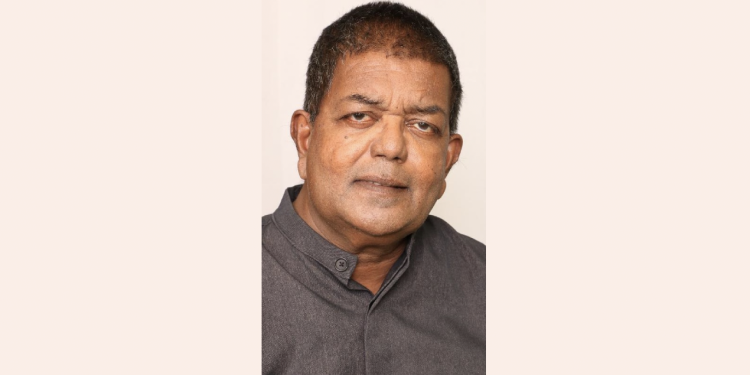I await the Minister of National Security appealing the ruling of Justice Robin Mohammed on the height requirement of the Trinidad and Tobago Police Service. In his comments on the ruling of the judge, Minister Hinds made reference to height being a criterion since 1938 when Trinidad and Tobago was a colony and went on to add that it was reaffirmed in 1971 and again in 2007.
I find it very strange that governments over the years have not looked at the recruitment process to the police force in the UK when our new laws are heavily influenced and shaped by legislations in the UK. Do citizens know that in the UK height is not a criterion for recruitment to the police force? In 1999 the Mc Pherson report made it clear that height restriction may discriminate against those of ethnic backgrounds who are genetically predisposed to be shorter than average.
 I hope that our State Prosecutors would be courageous to warn the Minister that he does not have grounds for appeal in this matter. Nevertheless, should our Appeal Court rule against Justice Robin Mohammed’s ruling, it would then be interesting to hear what the law lords have to say on this matter. In an age when canines are recruited in the fight against crime, this government of ours is betting on height! I wonder if we would ever reach the stage when our police service would appreciate that central to fighting crime is intelligence gathering and that certainly does not need height but a probing mind.
I hope that our State Prosecutors would be courageous to warn the Minister that he does not have grounds for appeal in this matter. Nevertheless, should our Appeal Court rule against Justice Robin Mohammed’s ruling, it would then be interesting to hear what the law lords have to say on this matter. In an age when canines are recruited in the fight against crime, this government of ours is betting on height! I wonder if we would ever reach the stage when our police service would appreciate that central to fighting crime is intelligence gathering and that certainly does not need height but a probing mind.
I want to congratulate Renaldo Maharaj and his lawyers for having the courage to go to court to challenge a perceived injustice. In this case it was denying Maharaj entry into the police service on the basis of height, being less than the required 167 cm.
Too many applicants over the years have been denied entry on the basis of height. I was happy to hear the judge speaking about discrimination by gender because women are recruited into the police force with a height of 5 feet 3 inches. Why not rule out height altogether like the UK?
Discrimination there will always be. However, more that discrimination is the courage to stand up against those who practice it. In this case it is the State and more specifically the Commissioner of Police. Equally encouraging are the lawyers of Freedom House led by Anand Ramlogan, SC and Jayanti Lutchmedial. They have time and again displayed a rare courage to stand up with the “short man” for justice.
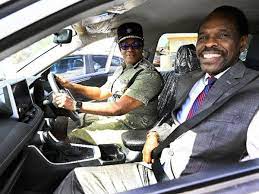
Several applicants revealed that after passing the examination, health and fitness tests they were denied selection because of ‘poor vision’. How was poor vision determined if not by an eye specialist? Or, was it left to the whims and fancies of the recruiting officers? Sometimes establishing ‘good’ vision can be very subjective.
How objective is the interview conducted? In a small country like ours we always wonder how some police officers were successful after an interview and more so their rapid rise within the ranks of the service. Our best example being those who have emerged to the pinnacle of the service.
While a major necessity for recruitment must be physical attributes and fitness, it is about time equal attention be given to social and intellectual competence. In my interaction with police officers today I find them to be better equipped socially in dealing with the public. However, given the range of crime including fraud and cyber-crime it is time that a second look be given to our recruitment criteria. Brawn and height just cannot cut it!
More importantly, the police service should be above the cut and trust of politics. If appointments to the senior ranks including Commissioner of Police and the appointment to the Police Commission are influenced by politics, then our country would surely slide downward, exactly what we are experiencing today.
The current runaway crime speaks volumes of the recruitment process we have been using. Had the recruitment been in the best interest of the nation, criminals would not be running around harming innocent citizens left, right and center. Our low conviction rate for crime committed should be enough reason to review our recruitment criteria.
I must conclude by congratulating the judge that so ruled. It is definitely a landmark ruling that has brought relief not only to Renaldo Maharaj but the thousands who have been discriminated by a defected recruitment process and the citizens who want more from the police in this fight against criminal gangs running rough shod.
